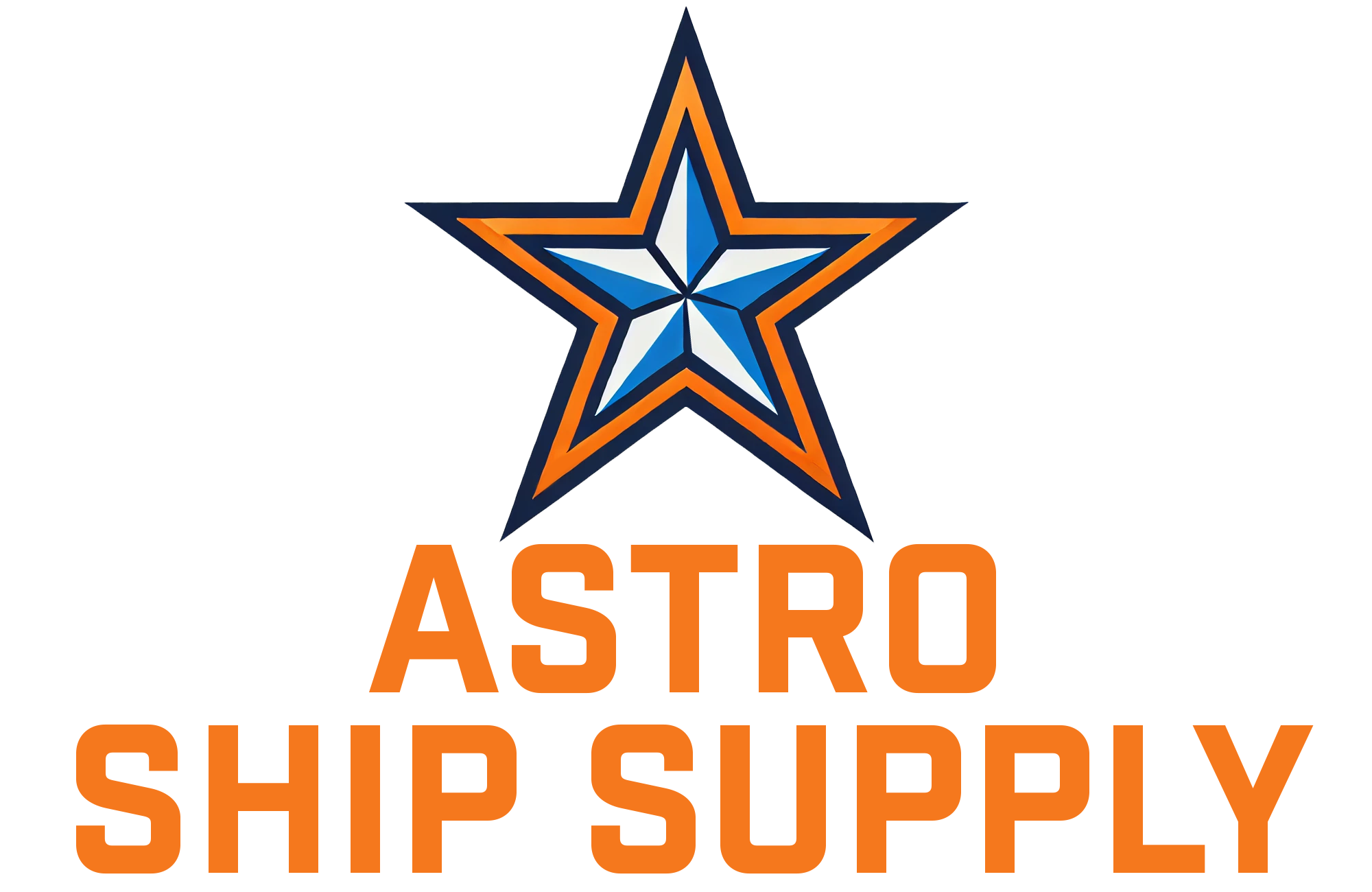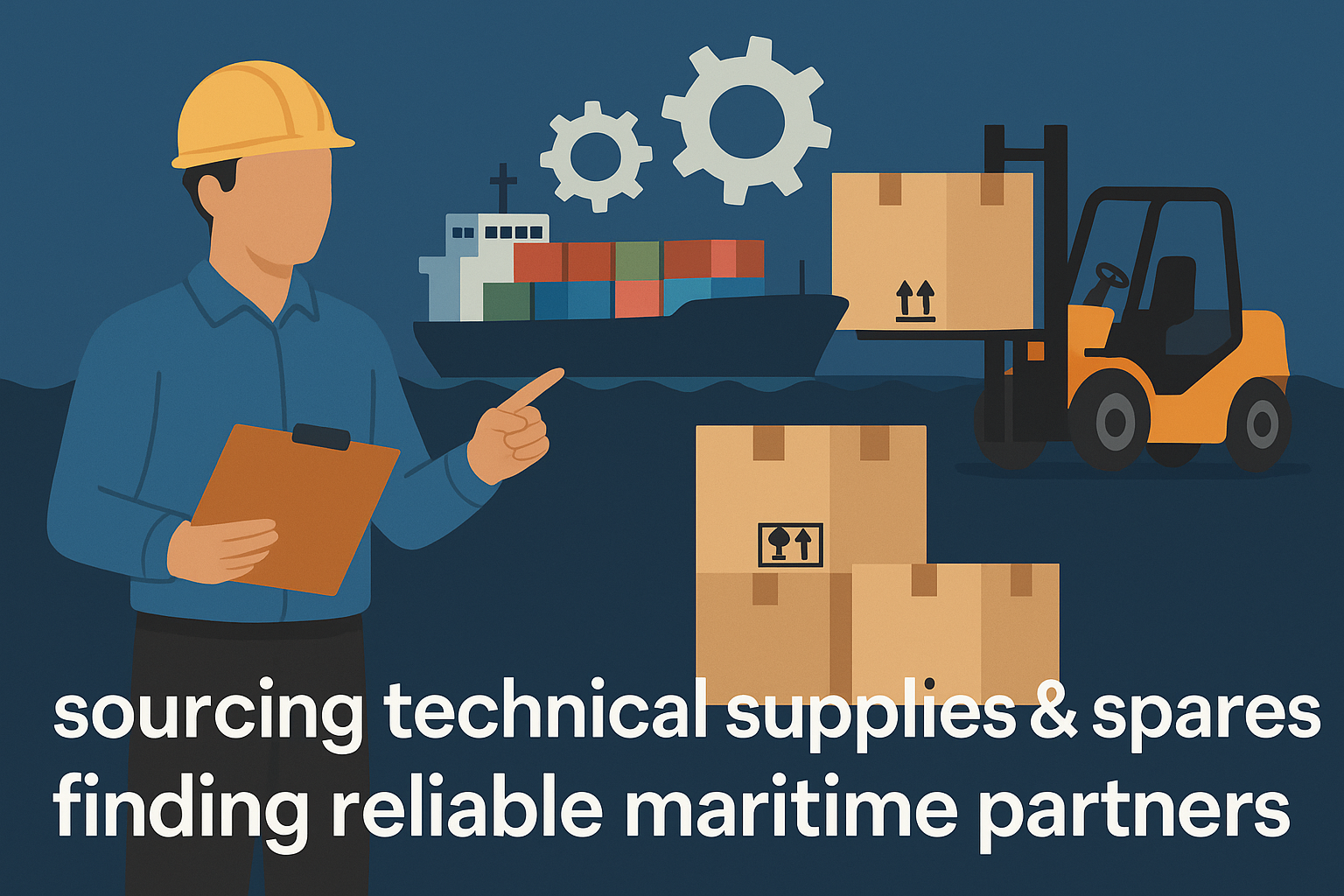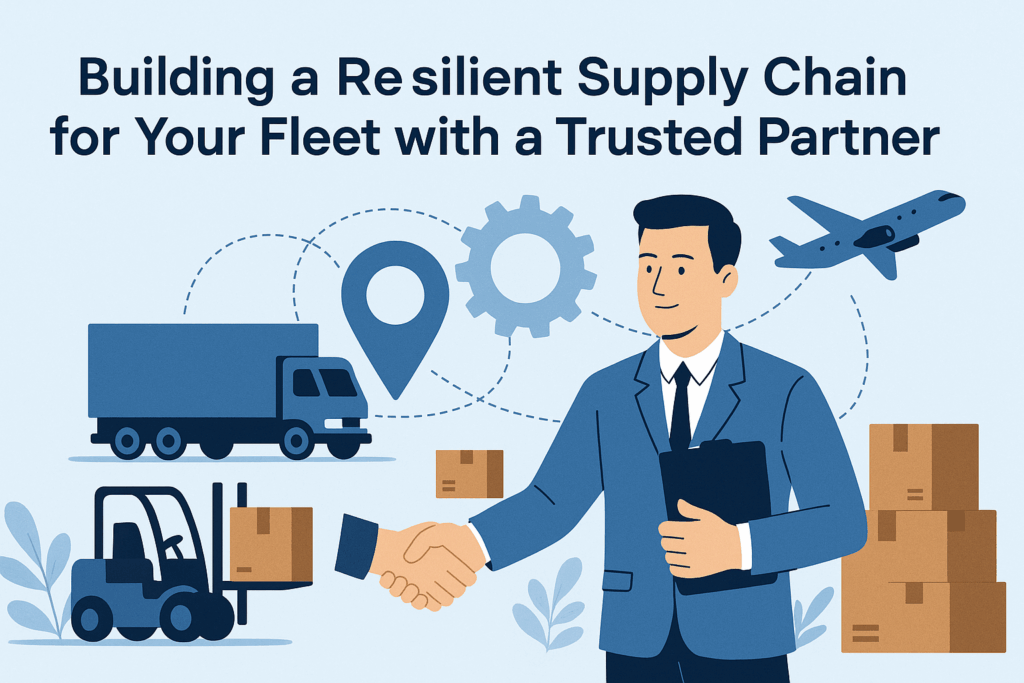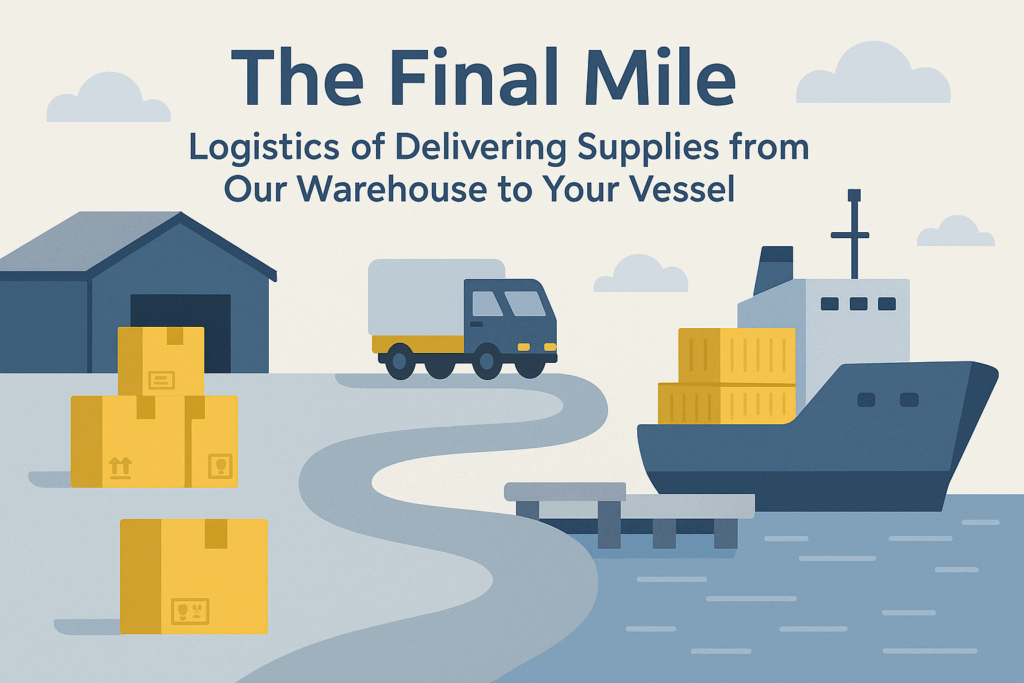The Critical Lifeline: Why Strategic Sourcing of Technical Supplies is Paramount for Vessel Operations
Imagine this: a vessel, hundreds of miles offshore, experiences a critical failure in its main engine due to a substandard spare part. Or picture a ship unable to leave port, incurring daily losses, because a specific, seemingly minor technical component couldn’t be sourced on time. In the high-stakes arena of maritime operations, the timely availability of genuine and correct technical supplies and spare parts isn’t just a logistical detail—it’s the absolute lifeline that ensures safety, operational continuity, and profitability. Unlike general provisions or cabin stores, sourcing technical items involves a complex maze of specifications, global supply chains, and stringent quality demands. Finding a truly reliable maritime partner like Astro Ship Supply, with the expertise to navigate this maze, is crucial for keeping your fleet sailing smoothly and efficiently.
The challenge lies in the sheer diversity and criticality of these components. From engine parts and pump spares to navigation equipment and specialized deck machinery components, each item must meet exact manufacturer specifications and often, stringent class society requirements. A failure in sourcing can have catastrophic ripple effects, making the choice of your technical supply partner one of the most strategic decisions a vessel operator can make.
Beyond the Part Number: The Unique Complexities of Technical Spares
Sourcing technical supplies effectively demands a level of expertise far beyond basic procurement. It requires a deep understanding of vessel systems, market dynamics, and the potential pitfalls of a globalized supply chain.
H3: Specificity, Criticality, and the Price of Error
Every technical spare has a precise role. Using a component that’s ‘almost right’ or of questionable origin isn’t a cost-saving measure; it’s a gamble with potentially devastating consequences:
- Exact Specifications: Unlike generic items, technical spares must match precise dimensions, material compositions, performance ratings, and interface compatibilities. The difference of a millimeter or a slight variation in alloy can lead to improper fit, premature failure, or damage to adjacent systems.
- Operational Criticality: Many spares are for systems vital to the vessel’s propulsion, power generation, navigation, or safety (e.g., SOLAS-related equipment). Failure of these components can lead to immediate operational stoppage, off-hire situations, or severe safety hazards.
- Certification & Compliance: Numerous parts require specific certifications from classification societies (e.g., DNV, ABS, Lloyd’s Register) or adherence to international conventions like SOLAS. Using non-compliant parts can void insurance, lead to detention by Port State Control, and compromise legal standing.
H3: Navigating the Sourcing Labyrinth: OEMs, Aftermarket, and Obsolescence
The global market for marine spares is vast and complex, presenting several challenges:
- OEM vs. Genuine vs. Aftermarket: Understanding the differences is key. Original Equipment Manufacturer (OEM) parts come from the same source as the original engine/equipment. Genuine parts are often OEM parts rebranded by the engine/equipment maker. High-quality aftermarket parts from reputable manufacturers can be a cost-effective alternative, but require careful vetting. The risk? Substandard or counterfeit parts flooding the market.
- Lead Times & Global Logistics: Spares may need to be sourced from anywhere in the world, involving complex logistics, customs clearance, and varying lead times. Urgent needs often require expedited shipping at significant cost.
- Obsolescence Management: For older vessels, finding spares for obsolete equipment can be a major hurdle, requiring specialist knowledge, access to niche suppliers, or even consideration of approved alternative solutions.
- The Counterfeit Menace: The proliferation of counterfeit parts poses a severe threat. These items, often visually indistinguishable from genuine ones, can fail catastrophically, endangering the vessel and crew. A reliable supplier has robust anti-counterfeit measures.
Identifying Your Strategic Ally: Qualities of a Top-Tier Technical Sourcing Partner
A truly reliable partner for technical supplies and spares isn’t just a vendor; they are an extension of your technical department. They bring expertise, resources, and a commitment to your operational success.
H3: Essential Attributes for Peace of Mind
When evaluating potential suppliers, look for these critical characteristics:
- Deep Technical Expertise: The ability to understand your requirements beyond a part number, discuss technical specifications, and even offer insights into potential issues or alternative solutions.
- Extensive Global Sourcing Network: Established relationships with OEMs, authorized distributors, reputable aftermarket manufacturers, and specialist stockists worldwide.
- Rigorous Quality Assurance Processes: Documented procedures for vetting suppliers, inspecting incoming parts, verifying certifications, and ensuring traceability to combat counterfeit risks.
- Proven Logistical Capabilities: Expertise in managing global freight, customs brokerage, and last-mile delivery to vessels in port or even offshore, especially under urgent conditions.
- Transparent Communication & Reporting: Keeping you informed at every stage – from quotation and sourcing to delivery tracking and documentation provision.
- Understanding of Classification & Compliance: In-depth knowledge of class society requirements, international maritime regulations (SOLAS, MARPOL), and the necessary certification paperwork.
- Crisis Management & 24/7 Support: The ability to respond swiftly and effectively to emergency breakdowns and AOG (Aircraft On Ground – adapted for ships as ‘Vessel Off Hire’) situations at any time. Access to reliable contact channels is vital.
A partner embodying these qualities, like Astro Ship Supply, transforms sourcing from a reactive task into a proactive strategy.
The Astro Ship Supply Edge: Experience and Networks in Technical Sourcing
At Astro Ship Supply, we leverage our industry experience and robust networks to provide dependable technical supply solutions. Our approach is built on:
H3: Proactive Sourcing & Supplier Vetting
We don’t just wait for your request; we actively cultivate relationships with a global network of trusted suppliers. Each potential supplier undergoes a vetting process to assess their reliability, quality standards, and adherence to ethical sourcing practices. This allows us to quickly identify the best source for your specific needs, whether it’s an OEM part or a high-quality, certified alternative.
H3: Quality Control as a Cornerstone
Our commitment to quality is unwavering. We understand that the integrity of a single component can impact an entire vessel. Our quality assurance includes visual inspections, verification of part numbers and serials against orders, checking for appropriate certifications, and ensuring secure packaging to prevent damage during transit. We strive to ensure that what you ordered is exactly what you receive, in perfect condition.
H3: Logistics Tailored to Maritime Urgency
We recognize that in shipping, time is often critical. Our logistics team specializes in the complexities of maritime supply, including coordinating with port agents, managing customs clearance efficiently, and arranging timely delivery directly to your vessel, wherever it may be in the Gulf Coast region. For urgent requirements, we explore all viable expedited options.
Case Files: Navigating Complex Technical Sourcing Challenges
Real-world scenarios best illustrate the value of an experienced technical supply partner:
H3: Scenario 1: The Elusive Obsolete Component
A vessel with aging machinery required a specific control unit that was no longer manufactured (obsolete). Standard suppliers drew a blank. Astro Ship Supply, through its specialist network and dedicated research, located a new-old-stock (NOS) unit held by a niche international stockist. We verified its authenticity, condition, and managed the expedited, fully documented shipment, preventing costly modification work on the vessel.
H3: Scenario 2: Emergency AOG – Main Engine Turbocharger Failure
A bulk carrier suffered a critical turbocharger failure mid-voyage, impacting its schedule and charter party. Upon receiving the urgent request with detailed specifications, Astro’s team initiated a global search through OEM channels and major independent stockists. A certified, compatible unit was located in Europe. We coordinated immediate airfreight, pre-cleared customs, and arranged for on-arrival delivery and technical support coordination at its next US Gulf port, minimizing downtime and financial losses.
H3: Scenario 3: Averting Disaster – Identifying a Counterfeit Fuel Injector
During a routine stock replenishment for a fleet, a client requested a specific brand of fuel injectors. One potential source offered a significantly lower price. Astro’s due diligence, involving requests for detailed batch certifications and cross-referencing manufacturer security features, raised red flags consistent with counterfeit products. We advised the client, sourced verifiably genuine injectors from an authorized distributor, and helped them avoid a potentially catastrophic engine failure and subsequent warranty issues.
Strategic Partner vs. Basic Parts Broker: A Critical Comparison
The choice of your technical supplier has long-term implications. Here’s how a strategic partner stacks up against a mere parts broker:
| Feature | Strategic Partner (e.g., Astro Ship Supply) | Basic Parts Broker |
|---|---|---|
| Technical Support | Offers expertise, understands applications, can advise on alternatives. | Primarily order-taking based on part numbers. Little to no technical advice. |
| Sourcing Scope | Global network, access to OEM, genuine, and vetted aftermarket. Proactive market intelligence. | Limited network, often relies on readily available stock or few known suppliers. Reactive. |
| Quality Assurance | Robust QA processes, supplier vetting, certification checks, anti-counterfeit measures. | Minimal QA, often relies solely on supplier claims. Higher risk of quality issues. |
| Crisis Management | Dedicated support for urgent/AOG situations, expedited logistics, 24/7 availability. | Limited ability to handle emergencies effectively. Standard business hours. |
| Documentation | Provides comprehensive documentation, including certs, CoCs, traceability. | Basic invoicing. May struggle with specific certification needs. |
| Focus & Value | Long-term partnership, operational reliability, total cost of ownership. | Transactional, lowest upfront price focus, often overlooking long-term risks. |
The High Cost of Cutting Corners: Risks of Inadequate Technical Sourcing
Opting for a cheaper, less vetted supplier for critical technical spares can lead to severe consequences:
- Increased Vessel Downtime & Off-Hire Costs: The primary impact of incorrect or failed parts.
- Elevated Safety Risks: Substandard components can lead to machinery failure, fires, or other hazardous situations.
- Voided Equipment Warranties & Class Issues: Using non-approved or counterfeit parts can nullify manufacturer warranties and cause problems with classification societies.
- Damage to Reputation: Operational unreliability due to spares issues can harm relationships with charterers and clients.
- Higher Long-Term Operational Costs: Premature failures and inefficient performance lead to more frequent replacements and increased fuel consumption.
- Legal & Environmental Liabilities: Component failure leading to pollution or accidents can result in significant legal and financial penalties.
Conclusion: Invest in Reliability for Your Technical Supply Chain
Sourcing technical supplies and spare parts is far too critical to be treated as a mere commodity transaction. It requires foresight, expertise, and a commitment to quality that only a dedicated maritime partner can provide. Investing in a relationship with a reliable supplier like Astro Ship Supply means investing in the safety, efficiency, and longevity of your fleet. We bring the technical know-how, global reach, and unwavering commitment to quality needed to navigate the complexities of technical sourcing, ensuring your vessels have the right parts, at the right time, every time. Don’t leave your operations to chance; partner with experts. Request a quote or contact us today to discuss your technical supply needs.
Frequently Asked Questions (FAQ) on Sourcing Technical Supplies & Spares
What’s the biggest challenge in sourcing technical marine spares today?
One of the biggest challenges is balancing cost with guaranteed quality and authenticity. The market is flooded with options, including low-quality aftermarket and counterfeit parts. Identifying reliable sources for genuine or high-quality certified spares, especially for older or highly specialized equipment, while managing lead times and logistics, remains a primary hurdle.
How does Astro Ship Supply ensure the authenticity of spare parts?
We prioritize sourcing from OEMs, authorized distributors, and highly vetted reputable manufacturers. Our process includes rigorous supplier evaluation, requests for certificates of conformity/origin, cross-verification of part numbers and markings, and thorough inspection upon receipt. We actively work to avoid the counterfeit market by dealing with trusted entities within our established global network.
Can you help source obsolete or hard-to-find technical parts?
Yes, this is a key area of our expertise. We leverage our extensive global network, which includes specialists in obsolete and hard-to-find components, as well as our research capabilities to locate such items. We also explore options for approved alternatives or re-engineered solutions where feasible and acceptable by class.
What is the typical lead time for technical spares?
Lead times vary drastically based on the item’s availability, manufacturer location, shipping mode, and urgency. Common items might be available locally or within days. Specialized or OEM parts from overseas can take weeks or even months. We always provide realistic lead time estimates and explore expedited options for critical needs.
How do you handle emergency technical supply requests for vessels in the Gulf Coast?
We offer 24/7 support for emergency situations. Upon receiving an urgent request, we immediately activate our sourcing network to locate the part. We then manage all logistics, including expedited shipping (airfreight if necessary), customs clearance, and direct delivery to the vessel in any Gulf Coast port, aiming to minimize downtime as much as humanly possible.






